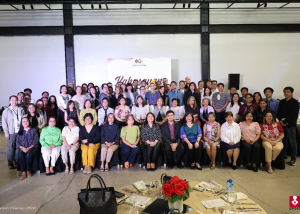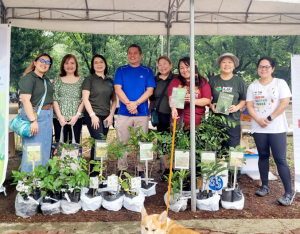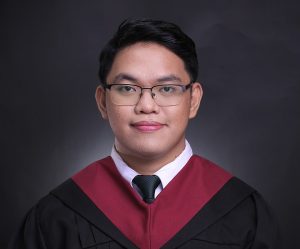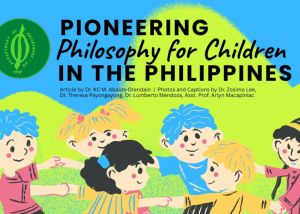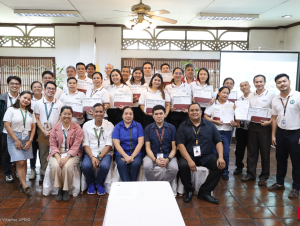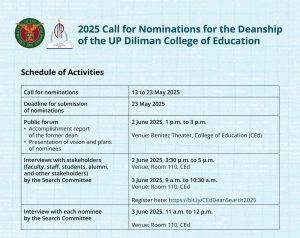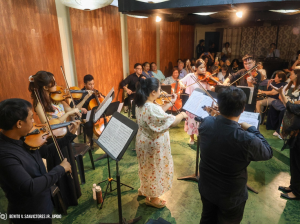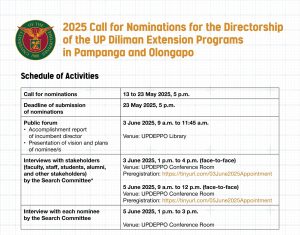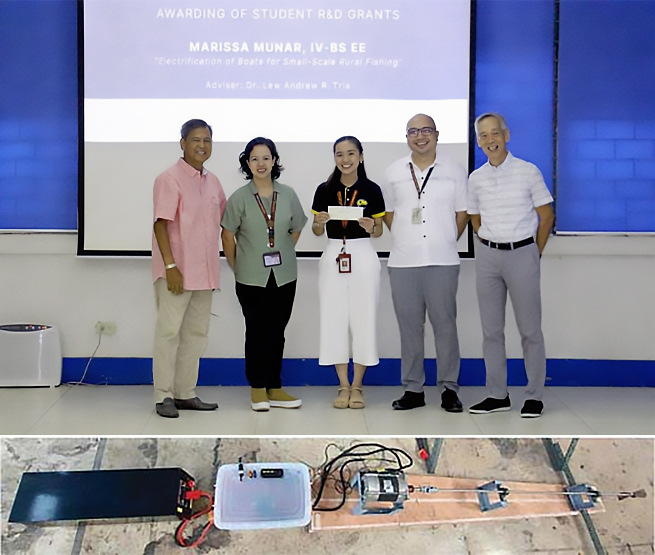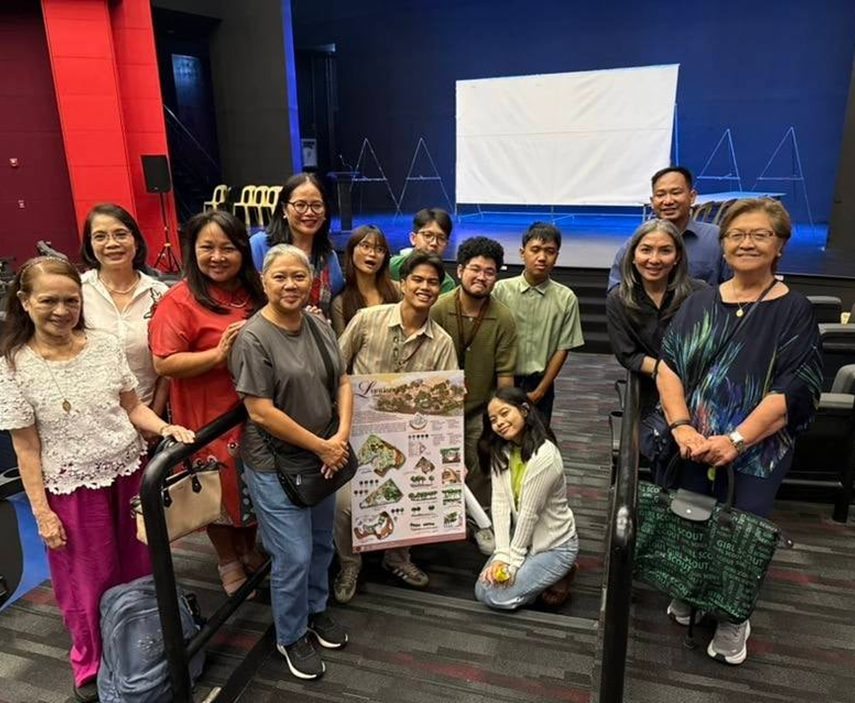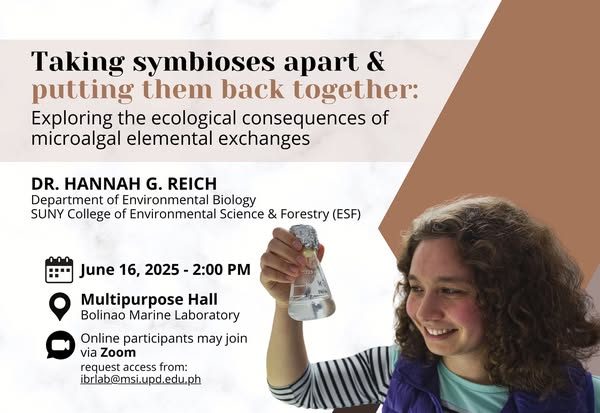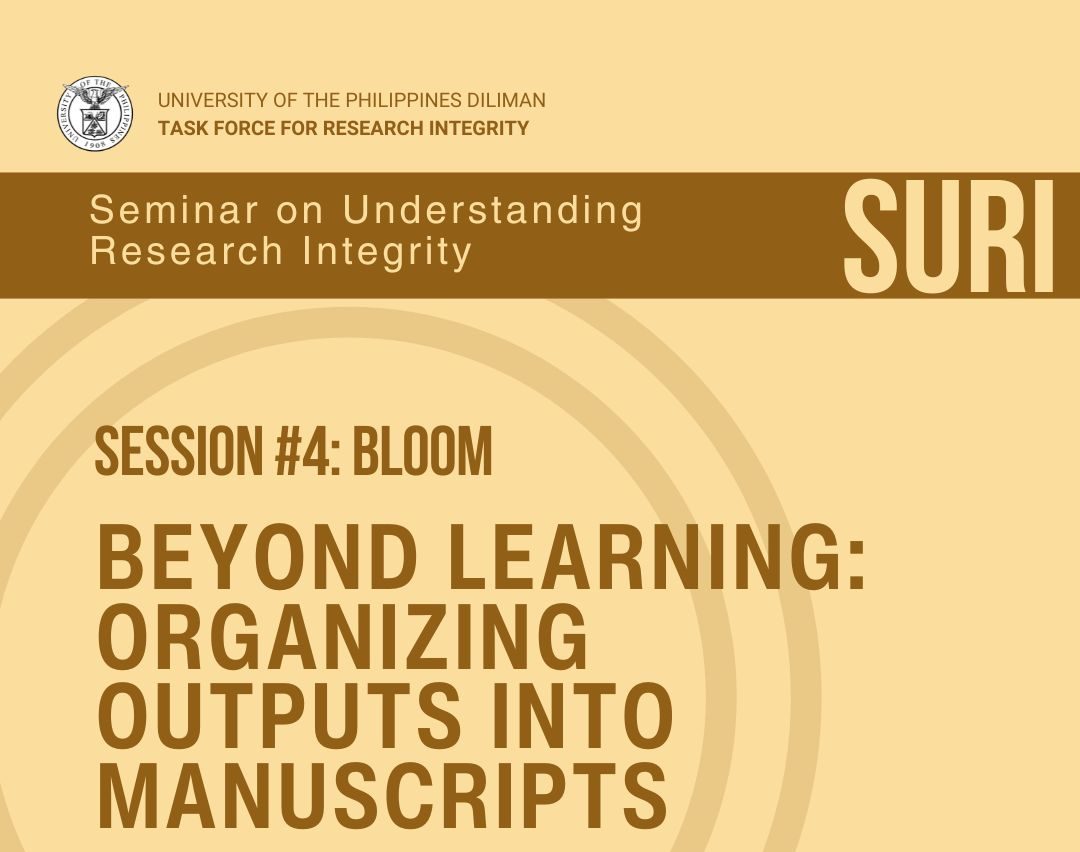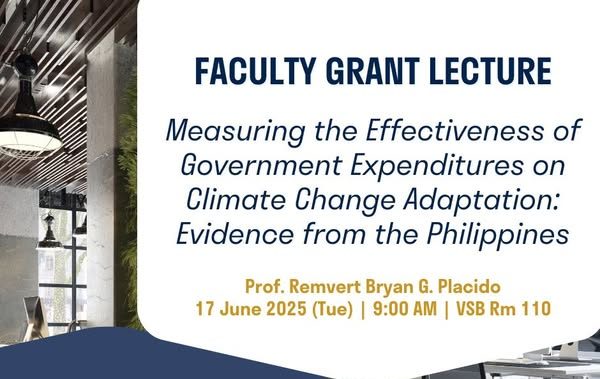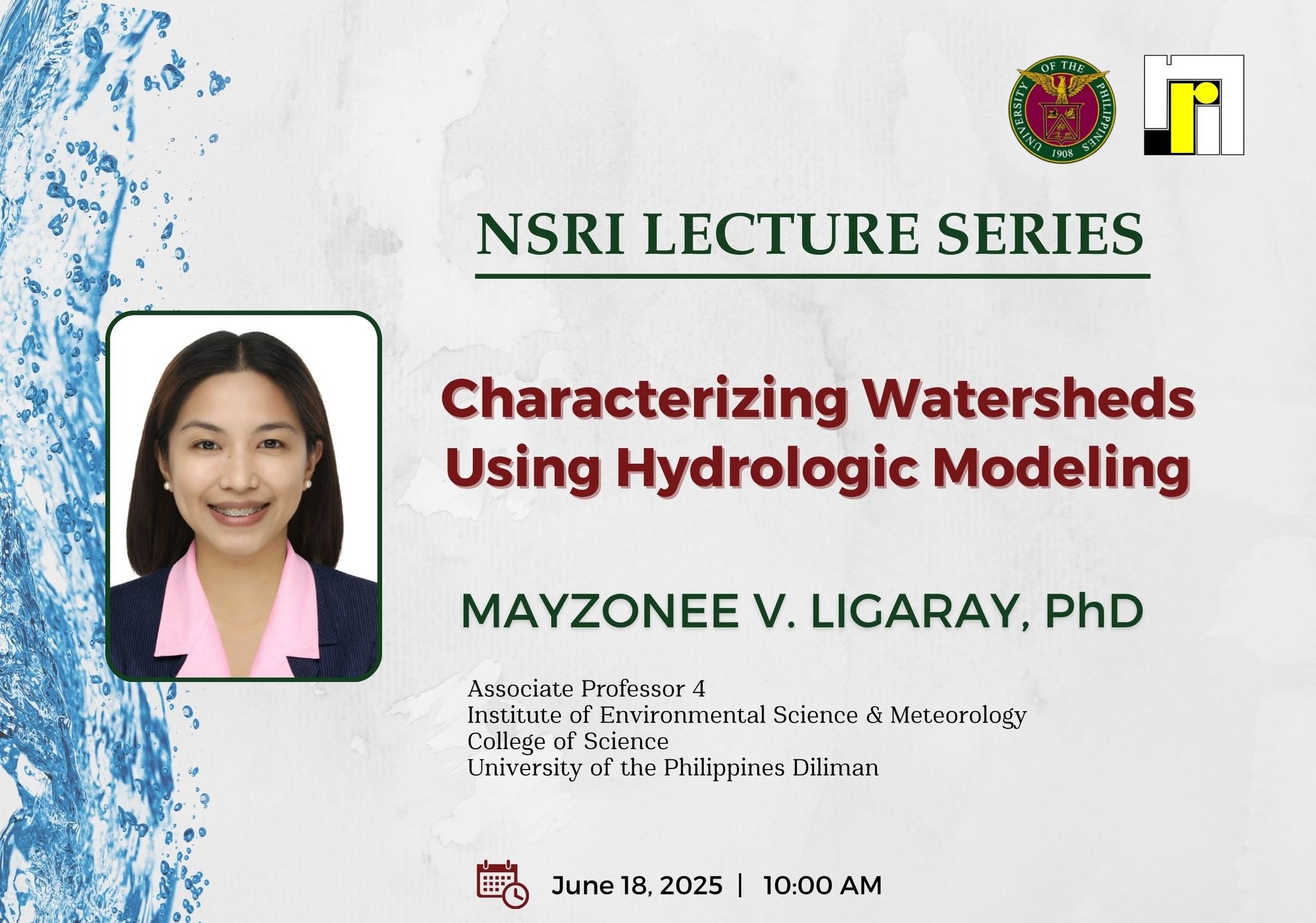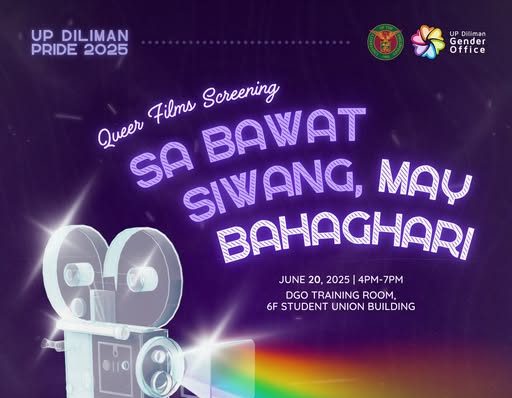Latest News
EEEI students and the bangka’s electrification
A group of students from the University of the Philippines Diliman (UPD) College of Engineering Electrical and Electronics Engineering Institute (EEEI) designed an electric-powered propulsion system for the bangka, the country’s traditional rural fishing boats.
Their project, Electrification of Boats for Small-Scale Rural Fishing,…
L Arch freshmen present PAUW inclusive park designs
First year landscape architecture (L Arch) students took on the challenge of coming out with conceptual designs for an inclusive park for the Philippine Association of University Women-UP Chapter (PAUW-UP).
It took the L Arch students less than six weeks to respond to the…

